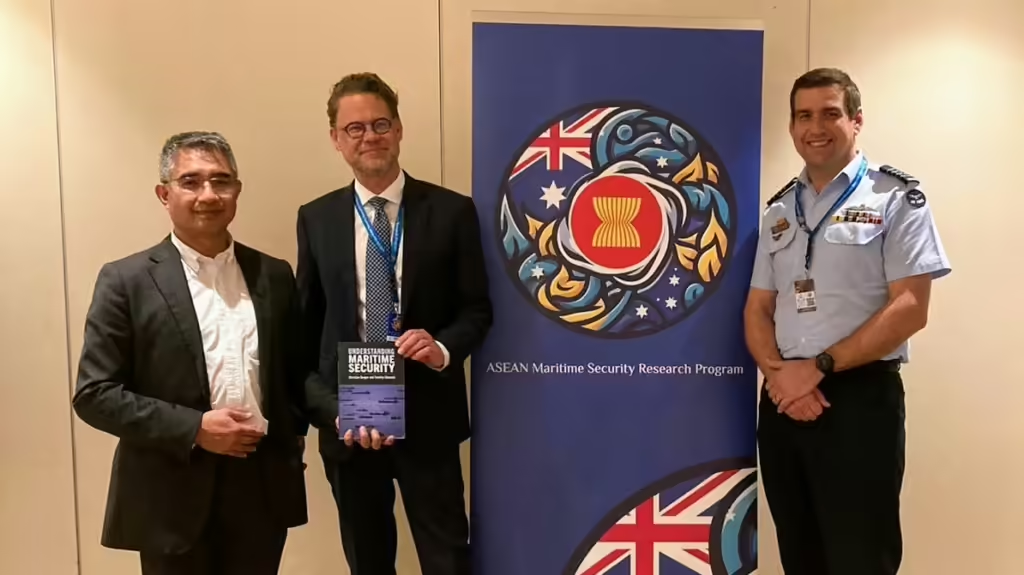Maritime Security depends on effective national capacities for law enforcement and surveillance as well as regional networks. Different approaches are used to help states to develop capacities and networks, including short term training courses and exercises.
This week I had the opportunity to participate in a seminar of an Australian capacity building initiative – the ASEAN Maritime Security Research Program.
✎ This program works with senior officials and allows them to conduct a 3 months research stay at the Australian centers for Sea Power and Air and Space Power. Participants develop a supervised research project on maritime security, participate in military interrelationship activities, such as base visits, and attend Australian multi national military gatherings. Many of the results of the research projects are published.
✎ Announced in 2018 at the Australia-ASEAN summit, 38 military officials from 8 ASEAN nations have participated in the program. Its main objectives are to develop national maritime security expertise, but also build trust, open channels of communication, share best practice and learn lessons, identify innovative solutions, and form a robust network of maritime security experts.
💡The program is noteworthy in the way that it emphasizes longevity and sustainable networks, but also for its focus on developing analytical and research skills, which is often undervalued in capacity building.

⚑ The seminar I attended was an alumni event and assembled the network to discuss research results with international experts and, in the organizers’ words, “rekindle old friendships and form new ones.” It featured presentations and interactive roundtables focusing on themes such as ASEAN’s maritime security architecture, MDA technologies, safety in the Strait of Malacca, or the situation in the South China Sea.
⚑ I was honored to deliver the keynote address at the event. Drawing on our book Understanding Maritime Security and a recent article, I focused on the new frontiers of maritime security. I flagged the need to adjust strategy to incorporate maritime cyber security, climate change and the critical maritime infrastructure protection agenda.